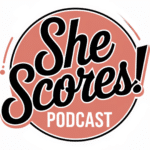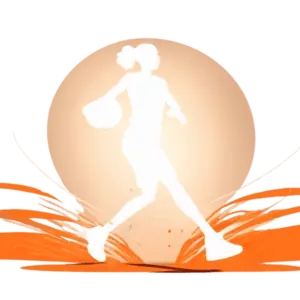Effective Study Techniques for Athletes: Maximizing Retention and Understanding
Striking the perfect balance between athletics and academics can be tough for student-athletes. You’re juggling practice, games, and study sessions, all while trying to maintain good grades.
By implementing effective study techniques, you can not only maximize retention but also enhance your learning potential. Imagine entering a test with confidence because your study methods truly work.


The key to successful studying lies in creating a routine that aligns with both your busy schedule and the way your brain processes information.
You need a strategy that helps you stay focused and energized. Choosing techniques like active recall and spreading out your study sessions can make a significant difference in how well you remember things.
Finding the right environment is just as crucial. Opt for a study area free from distractions to help you concentrate better.
Create a consistent schedule to make studying a natural part of your daily routine. Remember, the right strategy will lighten your mental load, leaving you more time for both sports and leisure.
Understanding the Unique Challenges for Student-Athletes
Table of Contents

Student-athletes face a demanding lifestyle. The need to excel academically while performing at high levels in sports can lead to specialized challenges such as scheduling conflicts and increased pressure.
Balancing Academic and Athletic Commitments
Commitments to both academics and athletics require careful planning. Your day is filled with classes, practice sessions, and sometimes travel for competitions. You might find the time demands overwhelming, especially during peak seasons.
Creating a structured schedule is crucial. Consider using digital tools or planners to track deadlines and practices. Schools often offer support services like tutoring specifically for athletes, which can be a valuable resource.
Common Academic Challenges Faced by Athletes
Student-athletes often deal with unique academic hurdles. Frequent absences for competitions can lead to missing important lectures or exams. Catching up can be a real challenge without the right support.
Use resources like The Student-Athlete’s Playbook: Mastering the Balancing Act to find tips on managing this balance. Online class recordings or notes from classmates can also help maintain your academic standing.
The Importance of Time Management
Efficiency in time management is essential for success as a student-athlete. You need to allocate your hours wisely to prevent stress and burnout.
Prioritizing tasks like assignments and training sessions helps maintain a healthy balance. It’s important to set realistic goals. Using strategies from Balancing Academics and Athletics for Student-Athletes can help establish effective routines that support both your educational and athletic goals.
By managing your commitments effectively, you can keep stress levels down while achieving success in both arenas.
Effective Study Techniques Tailored for Athletes

Athletes need study techniques that keep them engaged and focused. Balancing physical training with mental retention can be achieved with active learning, visual aids, and structured breaks.
Active Learning Strategies
Active learning requires you to engage with the material beyond simple reading. Techniques like summarizing in your own words, teaching the material to someone else, or creating questions based on your study material can deepen your understanding.
Another approach is to participate in group discussions, where you can voice your ideas and hear others’ perspectives. This not only solidifies your grasp but also helps you uncover strengths and weaknesses in your knowledge. Active engagement enhances retention and comprehension, making your study sessions more effective.
Book Your Dream Vacation Today
Flights | Hotels | Vacation Rentals | Rental Cars | Experiences
Utilizing Visual Aids and Diagrams
Visual aids can make complex information more understandable and memorable. For athletes, who often respond well to visual stimuli, charts, diagrams, and concept maps can be particularly useful.
They allow you to visualize information, drawing connections between ideas that might not be obvious through text alone. Using color coding can help differentiate sections and make patterns clearer. Creating these visuals yourself can further reinforce learning, as the process promotes active engagement with the material.
The Pomodoro Technique for Focused Study Sessions
The Pomodoro Technique enhances focus by breaking tasks into manageable intervals. You study for 25 minutes, then take a 5-minute break. After four cycles, take a longer break, around 15-30 minutes.
This structured approach can help improve concentration and prevent burnout. For athletes balancing a tight schedule, these sessions can be efficient. The technique is flexible and easily adjusted to fit different workloads or preferences, allowing you to adapt it as needed.
Incorporating Physical Activity into Study Breaks
Physical activity can be a valuable addition to your study breaks. Simple exercises like stretching, short walks, or quick workouts can rejuvenate your mind and body.
Regular movement increases blood flow and can enhance focus when you return to studying. For athletes, incorporating training elements into breaks not only maintains physical conditioning but also helps manage stress. Alternating between mental tasks and physical activity can lead to a more balanced and productive study routine.
Maximizing Retention and Understanding

Maximizing your retention and understanding as an athlete requires strategic approaches. Techniques like memory exercises, adequate sleep, effective note-taking, and collaborative group study can significantly enhance your learning capabilities.
Techniques for Better Memory Retention
Effective memory retention is crucial for athletes who need to recall plays and strategies. One method is spaced repetition, where you review information at spaced intervals to reinforce memory.
Mnemonic devices, which use associations to remember specific details, can also be helpful. Using visualization techniques, like imagining a sequence of plays, can cement these memories in your mind.
Repeating information aloud and creating flashcards aids retention. Incorporating these memory techniques into daily routines can boost your recall abilities, ensuring you stay sharp during competitive events.
The Role of Sleep in Learning and Retention
Sleep plays a pivotal role in consolidating and retaining information. During deep sleep, your brain processes and stores new information, making it easier to retrieve later.
Lack of sleep can impair memory and slow down learning. Aim for 7-9 hours of quality sleep per night to enhance your cognitive functions.
Naps can also be beneficial, especially after a study session. They give your brain time to absorb what you’ve learned. Consistent sleep patterns and a relaxing bedtime routine contribute to better retention and focus.
Effective Note-Taking Methods
Taking effective notes is vital for understanding complex topics. One proven method is the Cornell Note-Taking System, which involves splitting your paper into three sections: notes, cues, and summary. This layout helps organize information and highlight key points. Using bullet points and diagrams can make your notes clearer.
Additionally, consider digital notes that can be easily edited and retrieved. Reviewing your notes shortly after writing them helps reinforce the material. These techniques ensure you capture, organize, and understand information efficiently.
The Benefits of Group Study for Athletes
Group study can be a powerful tool for learning. By discussing topics with peers, you gain diverse perspectives and understand concepts more deeply.
Explaining ideas to others also helps solidify your knowledge. When you teach others in a group setting, it reinforces your comprehension.
Group study sessions can be made more effective by setting a clear agenda and assigning specific roles to participants. This structure keeps discussions on track and enhances productivity. For athletes, group study aligns with team dynamics, fostering an environment where learning becomes collaborative and enjoyable.
Tips for Balancing Academic and Athletic Commitments

Balancing your academic and athletic commitments demands strategic planning and self-discipline. Here’s how you can maintain harmony between school and sports.
Creating a Balanced Schedule
Start by mapping out a weekly schedule that includes both your classes and training sessions. This helps you visualize how to allocate your time. Use tools like digital calendars to keep track of important dates and deadlines.
Don’t forget to include time for study sessions and rest.
Making adjustments is crucial. Some weeks may require more focus on academics, especially during exams, while others may lean towards athletics due to competitions. Flexibility will help manage these shifting priorities. Look for any free times where you can sneak in short study breaks or quick workouts.
Prioritizing Tasks and Setting Goals
List your tasks daily and rank them by importance. Consider both deadlines and the time required to complete each task effectively.
This approach helps prevent last-minute rushes and reduces stress. Use a simple list or a bullet journal to organize everything in one place.
Set specific and achievable goals. For example, aim to complete reading assignments before practice or to finish projects a few days in advance. Clear goals keep you on track, providing a sense of accomplishment. Revise these goals regularly to make sure they align with both your academic and athletic commitments.
Leveraging Academic Resources and Support Services
Take advantage of the resources available to you, such as tutoring centers or study groups. Consider consulting with your coaches and teachers to discuss any challenges you face. They can often provide guidance or adapt schedules.
Online platforms can also be a great resource. Websites and apps that offer study aids can supplement your workload. Don’t hesitate to ask for help when needed; you’ll often find that many others are in similar situations and willing to share advice or study resources.
The Importance of Self-Care and Mental Health
Balancing these demands is stressful, so prioritize self-care. Ensure you’re getting enough sleep and maintain a healthy diet to fuel your body and mind.
Adequate rest is essential for peak performance in both academics and athletics.
Be mindful of your mental health. Practices like meditation and mindfulness exercises can significantly reduce stress.
If needed, seek support from mental health counselors who can provide strategies to cope with the pressures you face. Remember, a healthy mind is as crucial as a strong body.
Guidance for Coaches and Academic Advisors

Coaches and academic advisors play vital roles in helping student-athletes succeed both in their sports and academics. Supportive strategies, open lines of communication, and access to resources are all critical components.
Supporting Athletes’ Academic Goals
Your role is pivotal in setting achievable academic goals that align with each athlete’s workload and skillset. Engage in regular check-ins to reassess these goals and adjust as needed.
Encourage athletes to take advantage of tutoring and study groups to enhance their learning strength.
Help athletes manage their time effectively by working on creating schedules that balance both athletic and academic commitments. Encourage the use of planners or digital apps to keep track of assignments and training sessions. Offer assistance when they encounter hurdles that affect their academic performance.
Creating a Supportive Learning Environment
Fostering a nurturing environment is key. Ensure that practice schedules don’t conflict with crucial study times or exams.
Make sure your athletes have access to quiet study spaces, free of interruptions.
Collaborate with teachers to stay informed about academic challenges athletes might be experiencing. Encourage teamwork among athletes to create a culture where they motivate and support each other. Recognize academic achievements alongside sporting accomplishments to show athletes that their academic efforts are valued just as highly.
Encouraging Open Communication
Establish open lines of communication where athletes feel comfortable discussing challenges. Make it clear that they can freely ask for help or advice.
Regularly touch base about both athletic and academic concerns to maintain a clear understanding of their overall performance.
Encourage them to voice difficulties they face, whether related to classwork or personal issues that might be affecting their studies.
It’s important to listen actively and offer guidance that’s both honest and constructive, while respecting their privacy. Keeping dialogue open builds trust and enables you to be an effective mentor.
Providing Resources and Referrals
Know the resources available at your institution and make sure athletes know how to access them.
Facilitate connections with tutors, academic advisors, or career counselors who can offer specialized guidance. Address any nutritional needs by consulting with experts to ensure they maintain a healthy balance for optimal performance.
If athletes encounter challenges outside your expertise, don’t hesitate to refer them to counseling services, nutritionists, or other professional advisors. Help them navigate these resources efficiently.
By doing so, you contribute to their personal and academic growth, ensuring they have the support needed throughout their educational journey.
Conclusion

As an athlete, balancing study and sports can be a challenge. By using effective study techniques, you can boost your performance both on and off the field.
Here are some key strategies to keep in mind:
Mnemonics: Create simple acronyms to remember complex information. This can be a fun and effective way to memorize key points.
Visualization: Picture mental images that relate to the material. This helps make abstract ideas more concrete.
Repetition: Regular review sessions can reinforce what you learn. Consistency is key.
Teaching Others: Sharing knowledge with your peers helps solidify your own skills and understanding.
A well-rounded approach includes balancing academics and athletics.
Good time management is crucial here.
Keeping a schedule that includes both study sessions and training can help you stay on top of your game.
Remember to take breaks and ensure adequate rest. Physical and mental recovery is just as important as training and studying. This allows your brain to process information more effectively.
Being a student-athlete requires dedication and smart planning.
By implementing these strategies, you’re setting yourself up for success, both in your studies and sports.
Stay committed and focused, and you’ll likely see improvements in your retention and understanding.

